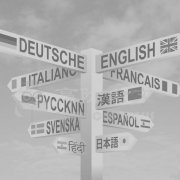resume 代写:配额
resume 代写:配额
配额在一定程度上限制某一特定商品的进口,使进口商品价格上涨,鼓励国内制造商以较低的价格销售产品,从而超过进口商品。配额是用来限制进口商品和保护国内产业的。例如,欧盟的牛奶配额一直在保护欧盟牛奶生产商不向其他国家出口更多的牛奶。欧盟负责向世界出口27%的原料奶,由于欧盟对出口的牛奶配额限制是要向is伙伴国家出口更多的牛奶,这一比例正在下降(Andersson & Lingheimer 2015)。因此,配额限制了欧盟牛奶销售商的收入,并在合同中增强了全球不同国家的竞争对手英里生产商,这些国家对牛奶出口配额的制裁较轻。配额通常像关税一样被用来保护国内产业,这样进口的国际产品就不会为国内生产创造竞争环境。
这样,国内企业就可以用更多的钱来教授员工先进的技术,投资于他们的教学,为他们提供相关的知识。在一个行业或产品中引入配额的另一个福利好处是稳定和提高国内就业,因为更多的国内活动和信心最终将产生更多的就业需求。这将稳定其国内经济,并缓慢减少贫困。另一个好处是,他的国际产品是由一个经验丰富的公司生产的,是防止直接竞争的新和婴儿在同一行业的参与者。这保障了行业内的新手,使他们能够为未来的大规模竞争做好准备。然而,有负面影响等引入配额的不公平贸易做法随后国际球员,因为他们吸引更多的赢得客户通过提供额外的支持客户,因为他们只有有限的配额产品销售和他们更愿意让更多的利润出售(Itō&克鲁格1993)定义的。
resume 代写:配额
Quotas are used to restrict the import of a particular good to an extent so that the price of the imported goods increases and the domestic manufacturers are encouraged to sell products at lesser price and thus gain over the imported goods. The quota is used to restrict the imported goods and safeguard the domestic industry. For example, the milk quota in the EU has been safeguarding the EU milk producers from sending more milk to different countries. The EU is responsible for sending 27% of raw milk to the world and this is decreasing due to the EU milk quota on exports that restricts is to send more milk to is partner countries (Andersson & Lingheimer 2015). Thus, quota is restricting the income of EU milk sellers and in contracts enhancing the competitor mile producers around the world in different countries who has lesser sanctions of quota of exporting milk. Quota is generally used like tariffs to safeguard domestic industry so that the international exports coming in do not create competitive situation for domestic production.
In doing so, the domestic industry can use more money to spend in teaching their employees about advanced technology and invest in their teaching, equipping them with relevant knowledge. The other welfare benefit of introducing quota in an industry or a product is the stabilisation and enhancement of domestic employment as more domestic activity and confidence will eventually produce more employment demand. This will stabilise its domestic economy and reduce poverty on a slow scale. The other welfare benefit is that the international product which his manufactured by a seasoned company is prevented from directly competing with new and infant players in the same industry. This safeguards the infant players in the industry so that they can equip themselves for future competition of large scale. However, there are negative impacts of introducing quotas such as unfair trade practices followed by international players as they are tempted more to win over customers by offering extra favours to customers as they only have limited quota of products to be sold and they would prefer to make more profit from a defined sale (Itō & Krueger 1993).








